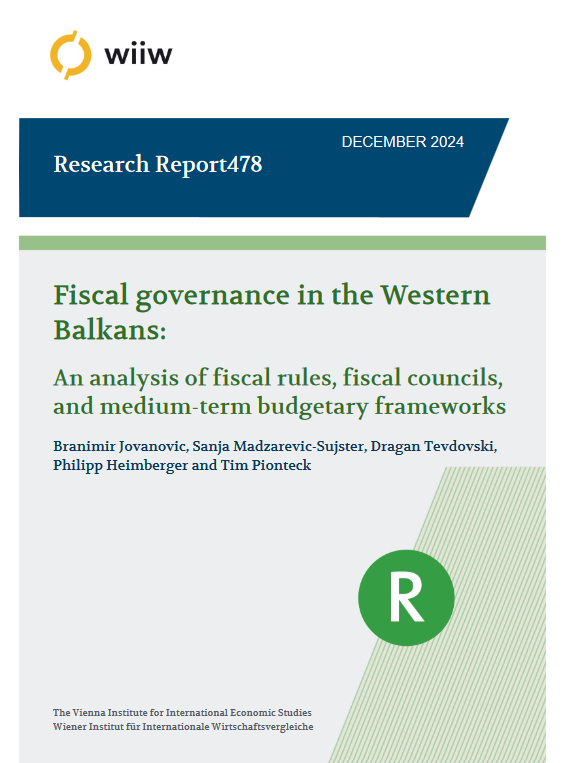This paper presents a detailed analysis of fiscal frameworks across the six Western Balkan economies utilizing a newly compiled dataset based on the European Commission’s Fiscal Governance Database. The analysis reveals that although all six Western Balkan countries have implemented some form of fiscal rule, these rules are generally less robust than those in EU member states in Central, Eastern, and Southeastern Europe. Independent fiscal councils are operational only in Serbia and North Macedonia, as well as in one entity in Bosnia and Herzegovina, while other Western Balkan economies are still in the process of planning or implementing similar bodies. Across the region, medium-term budgetary frameworks are largely indicative in nature. Statistical and econometric analysis indicates that fiscal rules and councils in the Western Balkans may have had positive effects on reducing deficits and maintaining sustainable public debt dynamics, but only sporadically and to a limited degree. The political-economy challenges facing economies in the region may be inhibiting the adoption of fiscal rules and impairing the operation of fiscal councils. An evaluation of recent changes to EU fiscal rules and their implications for the Western Balkans highlights the need to improve the technical and analytical capabilities of fiscal institutions, as the new rules could negatively affect public investment in the region unless spending can be prioritized effectively and supported by improvements in domestic revenue mobilization.

